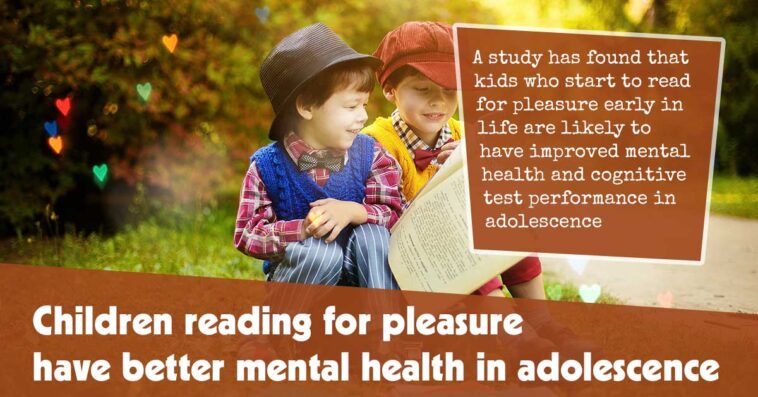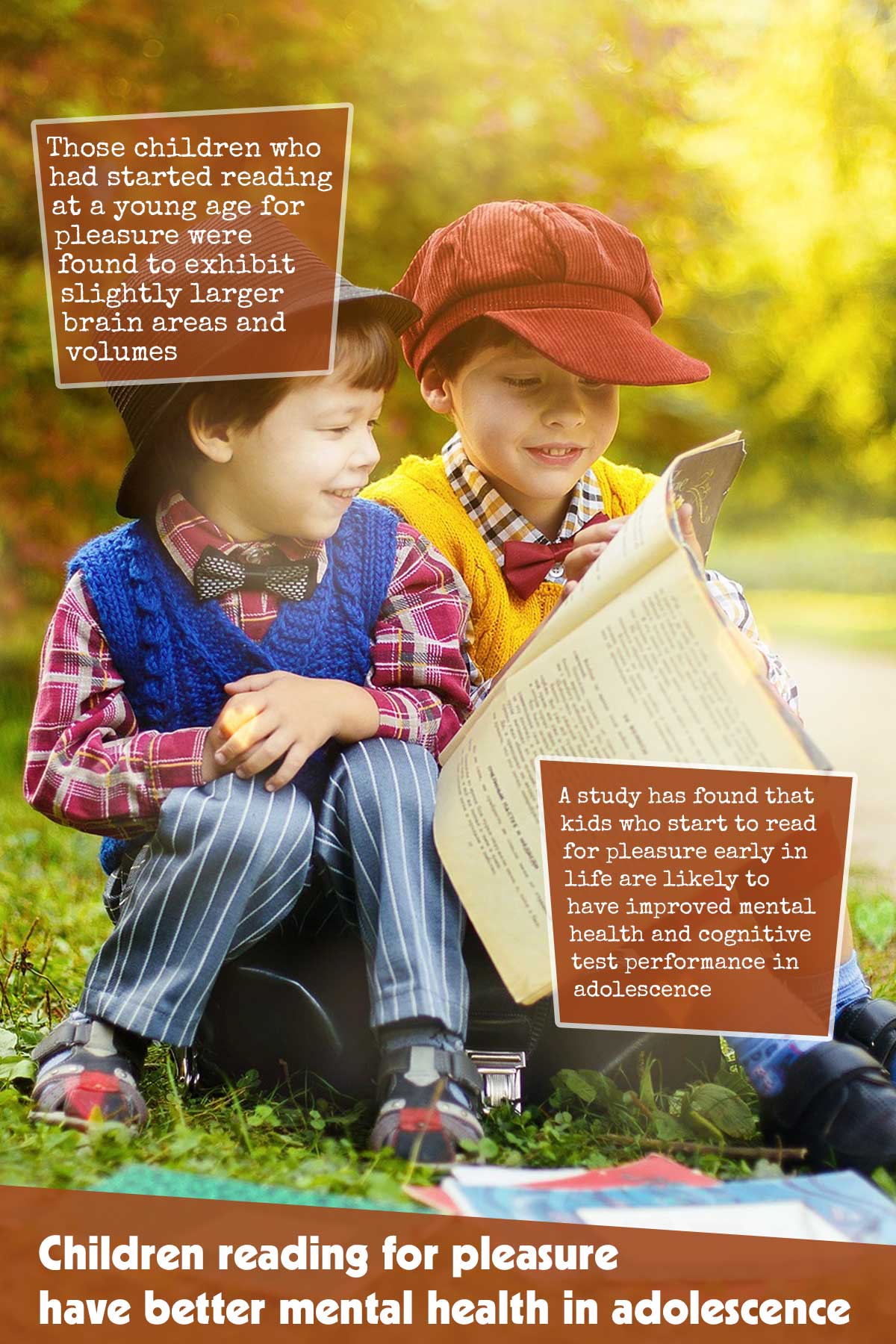A study of over 10,000 young children has found that kids who start to read for pleasure early in life are likely to have improved mental health and cognitive test performance in adolescence.1✅ JOURNAL REFERENCE
DOI: 10.1017/S0033291723001381
Researchers discovered that the optimum amount of reading was 12 hours per week, which was associated with brain structure improvements, which could help explain the results.
Reading for pleasure can be an enjoyable childhood activity with significant benefits. In contrast to spoken and listening language, which develops easily and rapidly in youngsters, reading is a skill that’s taught and is attained and developed by means of explicit learning with time.
The brain develops throughout childhood and adolescence, which makes this a crucial time in which behaviors can be established that promote good brain health and support cognitive development. It’s however so far not been clear what impact, if any at all, motivating children to read from a young age could have on mental health, cognition, and brain development when they are older.
To look into this, data were examined from over 10,000 young children enrolled in the Adolescent Brain and Cognitive Development study.
An array of data were analyzed from brain scans, cognitive tests, clinical interviews, and behavioral and mental assessments and a comparison was made between youngsters who started reading for pleasure at a fairly young age, between 2 and 9 years old, and youngsters who started reading later or not at all. Many important factors were controlled for, such as socio-economic status.
Of the 10,243 children analyzed, 48% of them had experienced little reading for pleasure or didn’t start reading until later in their years as a child. The other half had experienced between 3 and 10 years of reading for pleasure.
A significant connection was observed between reading at a young age for pleasure and improved performance in adolescence on cognitive tests measuring such factors as academic achievement at school, speech and memory development, and verbal learning.
These kids also had improved mental well-being, as evaluated by making use of several clinical reports and scores from teachers and parents, exhibited fewer signs of depression and stress, and also improved attention and fewer behavioral problems which included rule-breaking and aggression.
Kids who started reading earlier for pleasure tended to sleep longer and to spend less time watching TV or making use of their tablet or smartphone throughout the week as well as on weekends as adolescents.
When the adolescent group’s brain scans were examined, those children who had started reading at a young age for pleasure were found to exhibit slightly larger brain areas and volumes, which included specific brain areas that play essential cognitive function roles. Other brain areas that were different in this group were areas that have been shown before to correspond with improved mental health, attention, and behavior.
Reading isn’t only a pleasurable experience. it’s generally accepted that it encourages creativity and thinking, reduces stress, and increases empathy. Significant evidence was also found that it’s associated with important developmental factors in kids, such as improving mental health, brain structure, and cognition, which are foundations for future well-being and learning.
The optimum reading amount for pleasure as a young child was about 12 hours every week. There seemed to be no additional benefits beyond this. There was in fact a gradual reduction in cognition, which could be because they are spending more sedentary time and less time at other cognitively enriching activities, such as social activities and sports.




